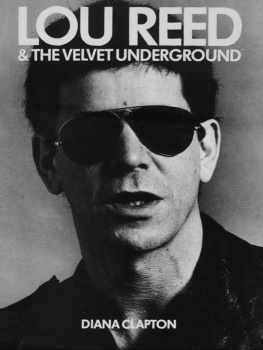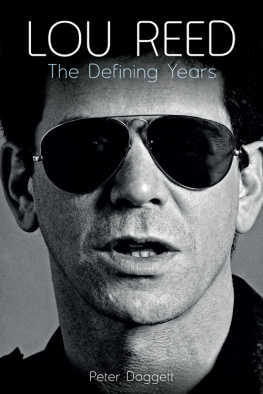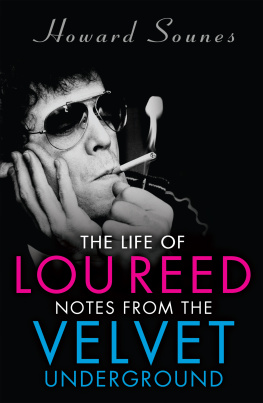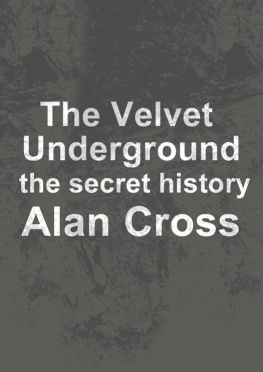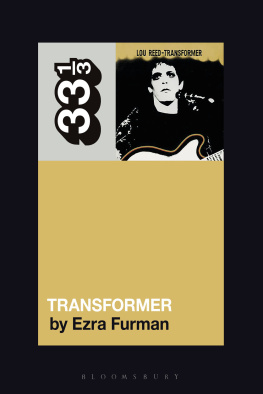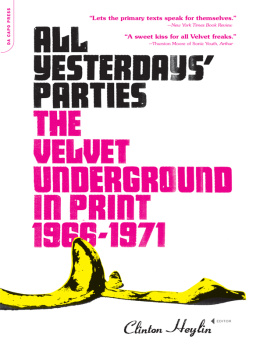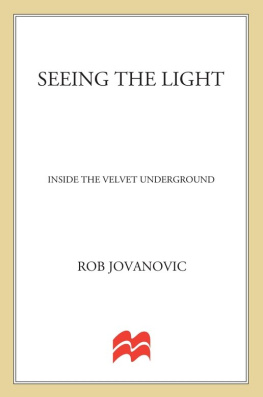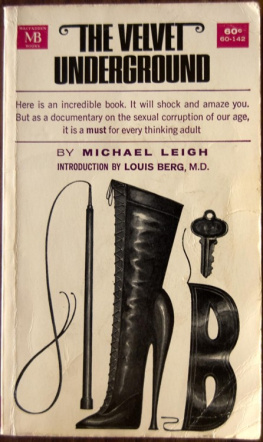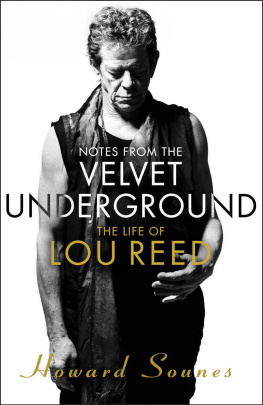
Copyright 1987 Bobcat Books
This edition 2012 Bobcat Books
(A Division of Music Sales Limited, 14-15 Berners Street, London W1T 3LJ)
ISBN: 978-0-85712-757-0
Photographs courtesy of the author unless stated otherwise.
The Author hereby asserts his / her right to be identified as the author of this work in accordance with Sections 77 to 78 of the Copyright, Designs and Patents Act 1988.
All rights reserved. No part of this book may be reproduced in any form or by any electronic or mechanical means, including information storage and retrieval systems, without permission in writing from the publisher, except by a reviewer who may quote brief passages.
Every effort has been made to trace the copyright holders of the photographs in this book, but one or two were unreachable. We would be grateful if the photographers concerned would contact us.
A catalogue record of this book is available from the British Library.
Visit Omnibus Press on the web: www.omnibuspress.com
(A Division of Music Sales Limited, 14-15 Berners Street, London W1T 3LJ)
For all your musical needs including instruments, sheet music and accessories, visit www.musicroom.com
For on-demand sheet music straight to your home printer, visit www.sheetmusicdirect.com
Dedication:
This is for Bester, Father and Sainte-Blanche.
Thank you:
First, gratitude and affection to my editors, Nicky Hodge and Lucy McCullough, for their support. To Rusty Hamilton, Mikael Kirke and Fran Pelzman for research, suggestions and diplomacy. To Barbara Pepe, Maggie and Jeff Cason, without whose generosity and thoughtfulness this would be much worse. To Philip Milstein of the Velvet Underground Appreciation Society, and to Francesca Strauss, Johnathan Blank, Monty, Chopin and Phoebe the K, on Paws Control, the great Wolff, Mr. Vom, the beautiful Dennis Dedalus and, lastly, to John Morthland for heartsblood kindness when nothing else mattered.
July 1982
I am an inventor more deserving far than all those who have preceded me; a musician, moreover, who has discovered something like the key of love I do not regret my old portion of divine gaiety: the sober air of this bleak countryside feeds vigorously my divine scepticism. But since this scepticism cannot, henceforth, be put to use, and since, moreover, I am dedicated to a new torment I expect to become a very vicious madman.
Arthur Rimbaud, Illuminations (1871)

Bob Gruen, Star File
INTRODUCTION
In terms of rock & roll, Lou Reed is our finest failed priest. On his shoulders has fallen the burden of expressing the pain, hope, desperation and false promises of the last seventeen years of American life. He has approached our worst nightmares from the stance of pure poetry, adopting the role of the dramatic reader; a part of his message is that there is indeed the chance for redemption, but all the possibilities have to be considered.
In founding the Velvet Underground with John Cale, he offered faith as a form of musical expression, although it may not have seemed so at the time. Conceived in perfect freedom, the group violated the prime show biz raison dtre, which is that it was there to entertain. Where other bands offered escapism and good times, the Velvet Underground offered blunt confrontation, rhythmic despair, the realism of desperate choices, the smell of the dragons tail rustling in the dry leaves, in a totally original musical form. Mostly, says Sterling Morrison, People hated us.
Lou was a streetwise update of Kerouacs Dharma Bum; he too almost always found his Boddhisatvas in the street. In back-alley biblical terms he wrote about people, as Lester Bangs observed, about whom nobody else gives a shit. He became their storyteller, to this day the best we have, an ascetic, moralistic voyeur/raconteur who explored life from the wild side, the underside, finding small answers. He always moved towards the white light, but his detours were confusing, and most of the time, you couldnt dance to em.
As to natural gifts, he is a sublime poet, as profound on the vagaries of human need as any world-class wordsmith he studied under Delmore Schwartz.
What John Rockwell terms his limited, insecure baritone, serves him well as a medium of expression, focusing attention on the ageless power of his lyrics. The emotional evocation of what might be considered his four-album passion play, the four offerings of the Velvet Underground, continues to yield up meaning in an age where questions of faith have become bad jokes or simplistic cop-outs. Lou Reed will never let you off that easily.
Vulnerable, arrogant, dependent, great-looking, stoned, straight, glib, abusive and unutterably charming, he contained multitudes indeed, often four or five perfectly formed concepts at direct odds. On a personal level, in my interviewing experience, this was a man deeply and desperately loved even through his two specialties, the lapse of taste and the lawsuit. Hurtling through life with a real outlaw passion, genuinely regretting the lack of available risks, of darkened seas to sail, he almost became every sorry clich in the rock mausoleum. Just almost. He seemed to realise instinctively that a wretchedly self-destructive death in Paris is only romantic to read about in bed. Image alteration was a primary source of amusement, but the real point was nothing less than personal salvation.
Watch out, the worlds behind you. and finally caught up with him, not with censure or even a warrant for indecent exposure, but a hard-won comprehension few other artists would have the smarts to hope for. Finally his savage visions and wise-ass humor and searing tenderness make impeccable sense, as there are no easy escapes anymore. What was alien and terrifying becomes a natural part of daily city life. He will not play the guru and the shaman and offer gently symbolic solutions, but insist, instead, that we be absolutely aware, that we refuse the easy alternative of even the most stylish failure and loss.
AS A YOUNG APOSTATE

Louis Alan Reed was born on March 2, 1942 into the upwardly mobile Brooklyn bourgeoisie, and soon began considering the alternatives. His parents were successful tax accountants who raised their sensitive, nervous first-born with considerable advantages. He started classical piano at age 8. In his early teens the family (now including a sister) moved to Freeport, Long Island. Lou attended public school, was bar mitvahed, and took up the guitar.
He played in school bands and cut his first record at the age of 14 So Blue, with the Shades. It earned, according to a later interview in People, royalties of 78 cents. He announced his intentions of continuing with his musical career, which appalled his parents. They were also not thrilled with his taste for lowlife Long Island rock and roll bars. I played in hoodlum bands where there were fights, he said in his first bio for RCA Records in 1972. In high school he went through a period of depression which alarmed his parents into making him go through electro-shock therapy; the experience was so traumatizing that he turned it into a painful song over a decade later,

